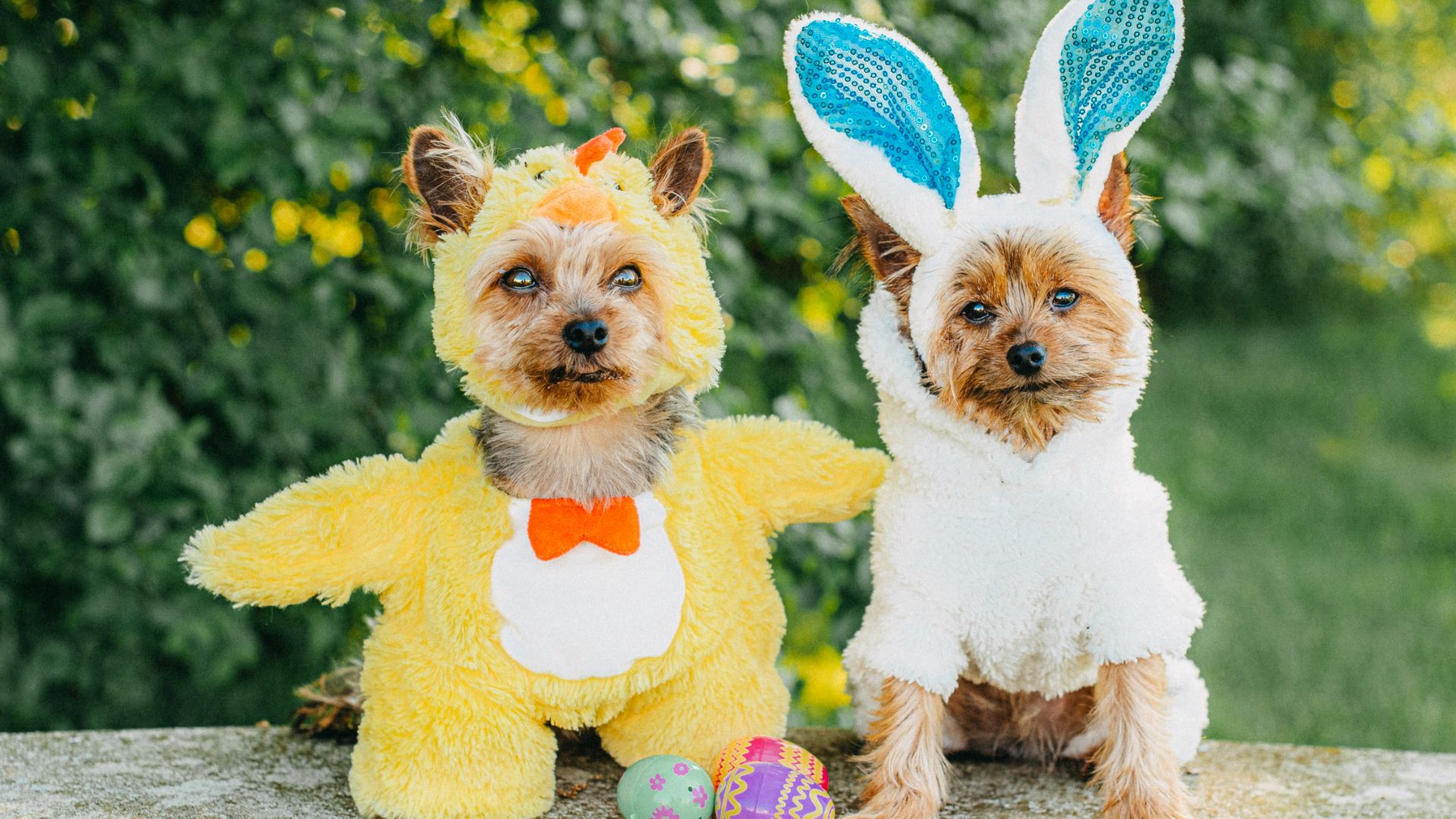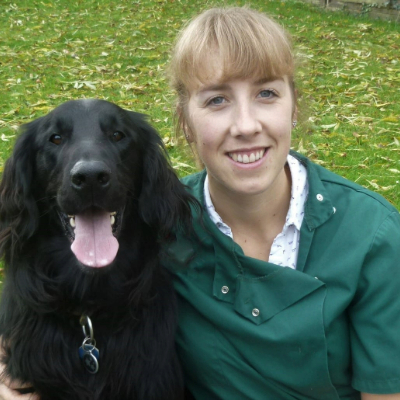Everything we know about Paris Hilton’s dog
Paris Hilton's dog lives in a $325,000 doggy mansion and sports the latest designer gear, but is dressing up your pet ethical?

There's no getting around it – Paris Hilton's dog is one pampered pooch! The businesswoman. socialite and former reality TV star has a huge love of animals, so much so that owns several Chihuahuas and Pomeranians plus a cat and even a pig.
Hilton's pups have their own social media account and live together in their own doggy mansion. But perhaps what the star is most known for is her love of dressing her dogs in their own designer gear. From tiny hoodies to the best dog coats covered in sparkles, Hilton's fur friends have a very impressive closet.
But while there's no denying her dogs, including her beloved Chihuahua Prince Tokyo Gizmo Hilton, look adorable in their oversized pearls and dazzling collars, is dressing up our pets really ethical? To find out, we consulted expert vet Dr Rebecca MacMillan.
Below, we reveal everything you need to know about Paris Hilton's dog, whether it's okay to dress up your pet, and the safe accessories that can benefit your dog.
Paris Hilton's Chihuahua
Just like us, Paris Hilton is a true dog lover – so much so that she's had 10 beautiful canine companions over the course of her adult life. The latest? A teacup breed Chihuahua named Prince Tokyo Gizmo Hilton, whom she welcomed into her family in 2023.
Hilton has a reputation for naming her pets after her favorite locations around the world, so this latest moniker came as no surprise to her fans. Prince Tokyo Gizmo Hilton was adopted just two months after the death of her beloved Chihuahua, Harajuku B, who died at the age of 23 – outliving expectations for even the longest living dog breeds.
Describing her dogs as “mini fashionistas”, she purchased them their own doggy mansion back in 2009 at the eye-watering cost of $325,000. The two-storey Spanish Colonial style building has wide-ranging views over Los Angeles and features a balcony, pink interior walls, a black staircase and chandelier, and of course, air conditioning, for those hot summer days.
Get the best advice, tips and top tech for your beloved Pets
A post shared by Paris Hilton (@parishilton)
A photo posted by on
Should we dress up our pets?
Hilton has made no secret of how much she loves to dress up her pups in runway-ready doggy designer gear. But is dressing up our pets ethical? And how do our fur friends really feel about parading around in those outfits we've picked for them?
We asked Dr MacMillan for her thoughts on whether we should dress up our pets or let them frolic about in the furry costume nature chose for them. Here's what she had to say:
"I don’t recommend people dress their pets up for novelty or fashion reasons," she says. "Treating animals like dolls is not ethical and could even be dangerous. Most pets don’t like being constrained in clothing, and many owners miss subtle cues that their dog is unhappy."
There are plenty of signs a dog is stressed that you can look out for, and Dr MacMillan says this could include "Trying to get the clothing off through rubbing or scratching, as well as signs of anxiety like excessive lip licking, yawning, and tense facial features. Many dogs are stoic and will tolerate a lot, but it doesn’t mean they should have to."

So, are there any cases where a dog should be dressed up? Well, according to Dr MacMillan, pets should only be clothed if it's for comfort or health reasons.
"A good example is if they are hairless dog breeds, thin, or elderly and need an extra layer to help them cope with cold weather," she explains. If you decide to dress your dog up for other reasons, she advises that you do this carefully.
"Choose accessories that are easy to get on and off quickly, so that you can remove them if your pet is becoming distressed," she says. "Make sure your items fit comfortably, and don’t rub or restrict movement. Accessories must not obscure your pet’s vision or hearing, either.
“You should only keep fancy dress items or clothing on your pet for very short periods. You must also monitor them during this time to make sure they are not overheating, becoming stressed, or that they don’t chew and accidentally ingest any of the costume."
Finally, it's worth considering your dog's temperament.
"If they are already nervous, anxious, or aggressive, then dressing them in an outfit will make them feel even more vulnerable," Dr MacMillan explains.
Accessories that benefit your dog
While dressing up your dog in costumes comes with various risks – particularly if your pup is already prone to feelings of nervousness and anxiety – there are some accessories that are functional and will benefit your dog.
"Waterproof or warm fleece dog coats are essential for some dogs during the winter months," Dr MacMillan explains. "Dogs that get cold quickly need these to be able to go for walks comfortably when the temperature drops. This includes breeds that are hairless or have thin fur, lean dogs, elderly dogs, and some puppies.
In the summer, a light T-shirt or vest may need to be worn by hairless breeds, to protect exposed skin from UV damage. Medical pet vests are another useful accessory which are designed to stop dogs from licking at surgical wounds. These can be a great alternative to large E-collars/buster collars."
When it comes to protecting dog paws in winter, Dr MacMillan says that dog booties can also be helpful in snow or ice, especially for working dogs that need to be out in adverse conditions for a long time.
"This helps to keep dogs comfortable and prevent frostbite."
And while there are certain dog breeds that are made for swimming, life jackets are still an essential accessory for dogs that go out on boats or spend a lot of time near the water.
"High visibility accessories are also great for dogs that need to exercise in low-lighting conditions, for example, in the evenings during winter," Dr MacMillan adds. "Reflective collars, harnesses, and jackets can help these pets remain seen."
Read next: Taylor Swift’s cats

Rebecca is a veterinary surgeon who graduated in 2009 from the Royal Veterinary College in London. She has a wealth of experience in first opinion small animal practice, having done a mixture of day-to-day routine work, on-call emergency duties and managerial roles over the years. Rebecca enjoys medicine in particular and she is proud to have recently achieved a BSAVA postgraduate certificate in small animal medicine (with commendation).
She writes on various feline and canine topics, including behavior, nutrition, and health. Outside of work and writing she enjoys walking her own dog, spending time with her young family and baking!

Kathryn is a freelance writer who has been a member of the PetsRadar family since it launched in 2020. Highly experienced in her field, she's driven by a desire to provide pet parents with accurate, timely, and informative content that enables them to provide their fur friends with everything they need to thrive.
Kathryn works closely with vets and trainers to ensure all articles offer the most up-to-date information across a range of pet-related fields, from insights into health and behavior issues to tips on products and training.
When she’s not busy crafting the perfect sentence for her features, buying guides and news pieces, she can be found hanging out with her family (which includes one super sassy cat and a kitten), drinking copious amounts of Jasmine tea and reading all the books.
She has written for a range of publications, including Fit&Well, Top Ten Reviews, LiveScience, Goodto, and Product Hunt.
